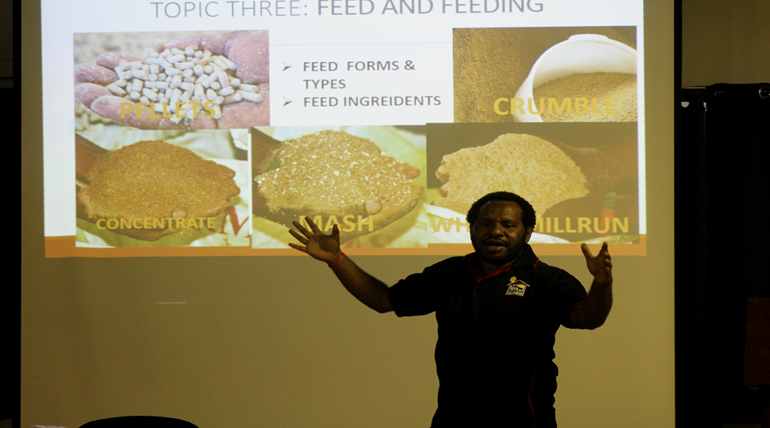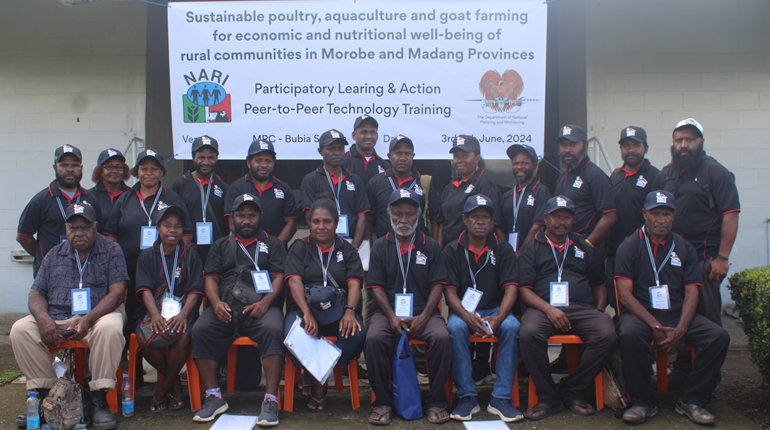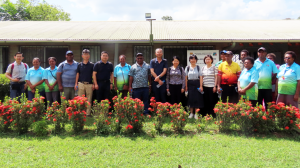A week-long training workshop on smallholder Livestock Breeding was conducted in the first week of June by NARI scientists. The workshop aimed to impart new technologies and methods for optimal livestock performance to farmers and senior Provincial Department of Agriculture (PDAL) officials from Morobe and Madang.
The workshop covered various modules of Livestock Breeding and Management, focusing specifically on Village Chicken, Duck, Sheep, Goat, and Fish. The primary agenda was Village Chicken breeding and hatchery management. Participants were guided through the different stages and processes of breeding and hatching eggs.
Livestock Scientist Elly Solomon explained that by the end of the workshop, participants should be equipped with skills to properly breed chickens, select suitable breeding cockerels or hens, and understand issues affecting their flocks. Solomon emphasized the importance of maintaining good condition in hens and roosters for successful fertilization.
Participants learned that in order to keep the breeding cycle going, a productive rooster must mate with a hen to produce eggs. He also noted that hens will lay eggs regardless of the rooster’s presence.
Egg hatching was discussed in two methods: natural and artificial. Solomon explained that naturally, the mother hen sits on her eggs, keeping them warm until they hatch, which takes approximately 21 days. Artificial hatching is done using an incubator. Additionally, Solomon recommended breeding ducks alongside chickens, as ducks can sit on and hatch chicken eggs faster than a hen.
Farmers were also shown how to mix feed for chickens, using stock concentrate mixed with grated and dried cassava or kaukau for a balanced diet. Village chickens can be utilized for meat and eggs, with surplus sold to generate income for families. Solomon highlighted the importance of nutrition as a major benefit of breeding village chickens.
In addition to chicken breeding, the workshop covered breeding techniques for ducks, sheep, goats, and fish. At the end of the workshop, NARI distributed chicken stocks to participants to take back to their respective communities and train local interested farmers in their districts.
Participants included representatives from Bogia, Transgogol, Beon, Madang Provincial DAL, Menyamya, Teptep, Bulolo, Finschhafen, and Morobe Provincial DAL.





